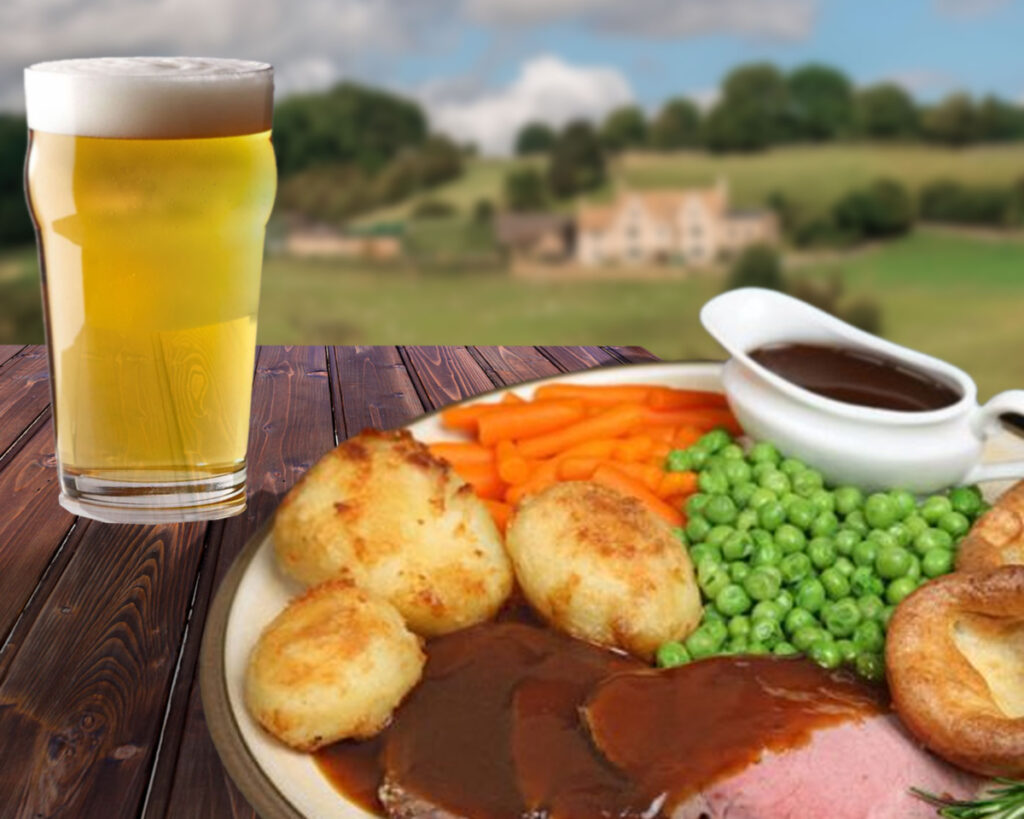A Sunday roast. Fish and chips. A full English breakfast. Tea. These things are all synonymous with Britain. They’re part of our culture, part of our cuisine; something we regularly consume in the UK and have done for years. So, if you were to find out that none of the ingredients to these dishes were first used in Britain, and that we weren’t even the first to use them together as dishes, would you change your idea of what ‘British cuisine’ is?
Veteran food writer Tim Hayward recently said, “For the longest time, it was just accepted that we didn’t have a British cuisine – we even borrowed the word from French.” If someone with Hayward’s deep well of gastronomic knowledge has difficulty defining what British cuisine is, imagine how hard it is for the culinary novice.
There are problems in defining any cuisine; after all, how can you define something that could include both deep-fried cod and a disc of congealed pig’s blood? It is an abstract concept, one that is susceptible to change and influenced by religion, economy, climate and geography. ‘British’ cuisine would need to be codified to be defined. As Hayward notes: “Unlike French or Japanese food, nobody has bothered to codify British cuisine.” Some cuisines, however, are clearly definable. “Italian food can be characterised as being all about the ingredients. French food is about tradition. Japanese food is about simplicity and technique,” Hayward continues.
“It is hard to think of British cuisine like we do with French or Italian. These cuisines are far more enclosed and formal,” says food anthropologist Bee Farrell. This convention ranges from “more formal training of chefs” to the exclusivity of other languages. “To access the recipes of, say, France, you really have to know French,” says Farrell. In his article, Hayward assures us that France was the first to codify western cuisine, so it can be done. British cuisine is more difficult to define because it has remained a concept, rather than a collection of formally defined ideas.
‘Cuisine’ is defined in the dictionary as “a style of cooking characterised by certain ingredients, techniques and dishes.” How does British cuisine fit into this? If it is all about the ingredients, root vegetables and various roasted meats would be prominent. Roast dinners, afternoon teas or fish and chips might also feature. The problem is that neither ingredients or dishes can define cuisine; the concept is too deeply rooted in culture and history to be stripped down to just food.
In the UK, our history of migration and colonisation has had a profound impact on our cuisine. “The beauty and the beast of British cuisine is that it has been adapted to and assimilated many different cuisines over 1000 years,” says Farrell. The UK has been invaded and the invader throughout its 2000-year history. Along with trade, the empire brought with it increased travel and migration. More recently, Farrell says, “there’s been a lot more tourism, where the ‘masses’ experienced food and other cultures and brought it back.” In short, ingredients brought over by hundreds of years of invasion, travel and immigration have changed our tastes. “Arguably there has never been a traditional British cuisine, because we, as an island, have had so many different people that we have shared our food story with,” says Farrell.
But what about the present day? It is possible to define contemporary British cuisine? Farrell doesn’t think so. “It is difficult. Everything moves and shifts; nothing is constant,” she says. Nowadays, globalisation and the internet have caused a shift in what is available to us, both in terms of knowledge and produce. A Londoner can buy bananas flown in from Ghana at their local ASDA almost as easily as they can order a Vietnamese takeaway; if they prefer, they can Google how to make a Thai green curry.
Cuisine is a reflection of culture and society; two things that are constantly changing in modern, multicultural Britain. The UK’s capacity to acceptor celebratedifferent cultures and beliefs often leaves a lot to be desired; for example, a 2018 study carried out by ICM and British Future found that 4 in 10 participants thought that “having a wide variety of backgrounds has undermined British culture”. Rather selfishly, our ability to assimilate cuisines seems to be better. Nowhere is this more visible than on British streets, where smaller, independent restaurants from all over the globe appear alongside dominant chains such as Wagamama’s. Manchester’s Deansgate, for example, currently counts three independent Spanish restaurants, two Greek, two Italian, two Turkish, one Indian and an Australian-Indonesian fusion – among others – with a Wagamama’s and Nando’s both relegated to nearby side streets.
That international cuisine has become part of our own is self-explanatory, as we don’t seem particularly proud of our own cuisine. This may be because of our food’s reputation abroad – a quick Google search of ‘British cuisine reputation’ throws out results such as ‘Why is British food the laughing stock of the entire world?’ – or because we are simply happy to preserve traditional British foods via pub food and home cooking. Whatever the reasons behind it, this inherent lack of pride means we have been more open to exploring and adopting other cuisines.
The explosion of food such as Nando’s is probably not something that captures the imagination of trend-chasing ‘foodies’, but it is hard to deny that such places are now as important to the British food scene, if not more so, than pub food or that of the restaurants of a Ramsay or Blumenthal. It is here that the problem of defining British cuisine lies. It is simply not a singular thing; it encompasses the old and the new. It varies from person to person, area to area; it can range from Rusholme’s ‘Curry Mile’ to London’s Chinatown. It could be anything from a Spoons breakfast to a Michelin star menu, and everything in between.
Read More

